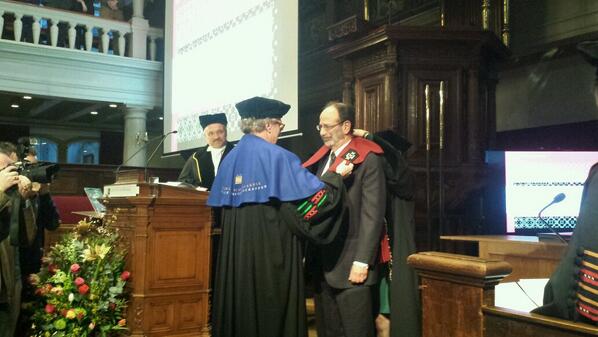Here is the official announcement, dated January 13, 2014:
To: All United States Judges
From: Judge John D. Bates
RE: LAW CLERK HIRING (INFORMATION)
In accordance with recommendations made by the Online System for Clerkship
Application and Review (OSCAR) Working Group (Working Group), I am writing to inform
you that the Federal Law Clerk Hiring Plan has effectively been discontinued and no further
dates are being set in connection with that plan.
I also have adopted the Working Group’s recommendation that there be a phased
approach for opening OSCAR to law school students in 2014. The Administrative Office
will open OSCAR to rising second-year law school students in a read-only capacity effective
June 1, 2014, and permit them to build and finalize clerkship applications effective August 1,
2014. Third-year law school students and alumni will continue to have full access to OSCAR
year-round.
The Working Group judges have developed a list of Federal Law Clerk Hiring Best
Practices to support transparency in the hiring process. In addition, the Working Group is
asking the National Association for Law Placement to create a list for judges of
recommendations regarding clerkship recruiting best practices from the law school
perspective. The Administrative Office will post the list in OSCAR. I hope you will find
both lists helpful in determining your clerkship recruitment and hiring practices.
The Judiciary supports a transparent clerkship recruitment and hiring process, and
OSCAR plays a valuable role in ensuring transparency. OSCAR’s online application process
eliminates paper and saves court staff time. Using OSCAR adds diversity to judges’
applicant pools and enables judges to electronically manage a large volume of applications
through search and sort features. I encourage you to use OSCAR to post your hiring
practices. To register for an OSCAR account, please visit the OSCAR registration page.
HT: Catherine Rampell
To: All United States Judges
From: Judge John D. Bates
RE: LAW CLERK HIRING (INFORMATION)
In accordance with recommendations made by the Online System for Clerkship
Application and Review (OSCAR) Working Group (Working Group), I am writing to inform
you that the Federal Law Clerk Hiring Plan has effectively been discontinued and no further
dates are being set in connection with that plan.
I also have adopted the Working Group’s recommendation that there be a phased
approach for opening OSCAR to law school students in 2014. The Administrative Office
will open OSCAR to rising second-year law school students in a read-only capacity effective
June 1, 2014, and permit them to build and finalize clerkship applications effective August 1,
2014. Third-year law school students and alumni will continue to have full access to OSCAR
year-round.
The Working Group judges have developed a list of Federal Law Clerk Hiring Best
Practices to support transparency in the hiring process. In addition, the Working Group is
asking the National Association for Law Placement to create a list for judges of
recommendations regarding clerkship recruiting best practices from the law school
perspective. The Administrative Office will post the list in OSCAR. I hope you will find
both lists helpful in determining your clerkship recruitment and hiring practices.
The Judiciary supports a transparent clerkship recruitment and hiring process, and
OSCAR plays a valuable role in ensuring transparency. OSCAR’s online application process
eliminates paper and saves court staff time. Using OSCAR adds diversity to judges’
applicant pools and enables judges to electronically manage a large volume of applications
through search and sort features. I encourage you to use OSCAR to post your hiring
practices. To register for an OSCAR account, please visit the OSCAR registration page.
HT: Catherine Rampell






